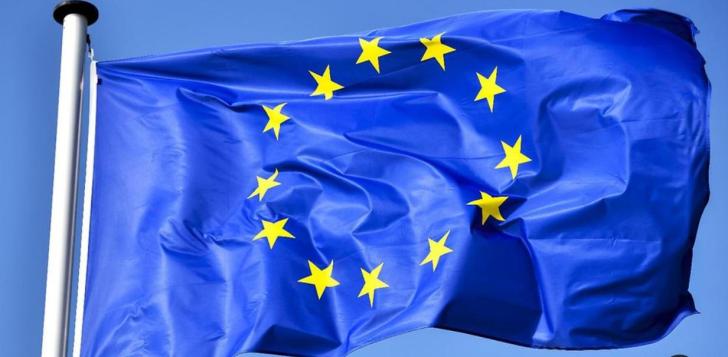News / Local
EU could face gas shortages
07 Nov 2024 at 16:00hrs |
0 Views

The European Union's gas supplies could be at risk this winter due to increasing reliance on liquefied natural gas (LNG) as a replacement for Russian pipeline gas, the Financial Times wrote on Thursday.
The bloc increased LNG purchases two years ago following the escalation of the Ukraine conflict and sanctions on Russia. The supply and pricing of globally traded super-chilled fuel are volatile and can be affected by regional crises. This is the EU's "fundamental problem," the publication explained.
"As it stands, Europe's gas storages are full and the winter gas balance looks OK," one trader told the FT. "But anything can happen. You just need a few supply disruptions and things could go horribly wrong."
EU will not lift Russia sanctions - MEPs
The EU still gets around 5% of its gas imports from Russia via Ukraine's gas transit network, according to Brussels-based economic think tank Bruegel. The transit agreement between Moscow and Kiev is set to expire on December 31. The Ukrainian leadership has insisted that this will not be extended. Russian President Vladimir Putin said last month that Moscow can continue to supply piped gas to the EU via Ukraine, but Kiev must extend the contract.
"If we suddenly get a very cold winter at the same time as we lose the Russian gas flows, that will just be very bullish for gas prices," energy strategist Florence Schmit told the FT. "And I don't think there's going to be any big alternative supplies via [other] pipelines. I think most of it will need to be replaced by LNG."
Another source of concern is a possible escalation of the Middle East conflict, the FT noted. A closure of the Strait of Hormuz, the only sea passage from the Persian Gulf to the open ocean and an area sensitive to tensions between Israel and Iran, would jeopardize 20% of the global LNG supply, according to energy analytics firm Kpler.
"The risk is we don't run out of gas this winter, but it gets a lot more difficult to fill to a comfortable level ahead of next winter," another gas trader told the FT. "You'll always have gas. The question is what price you get that gas in."
In late October, European gas prices climbed to their highest level of the year, close to €44 ($47.50) per megawatt hour, as a production outage in key supplier Norway added to market concerns over the situation in the Middle East.
The bloc increased LNG purchases two years ago following the escalation of the Ukraine conflict and sanctions on Russia. The supply and pricing of globally traded super-chilled fuel are volatile and can be affected by regional crises. This is the EU's "fundamental problem," the publication explained.
"As it stands, Europe's gas storages are full and the winter gas balance looks OK," one trader told the FT. "But anything can happen. You just need a few supply disruptions and things could go horribly wrong."
EU will not lift Russia sanctions - MEPs
The EU still gets around 5% of its gas imports from Russia via Ukraine's gas transit network, according to Brussels-based economic think tank Bruegel. The transit agreement between Moscow and Kiev is set to expire on December 31. The Ukrainian leadership has insisted that this will not be extended. Russian President Vladimir Putin said last month that Moscow can continue to supply piped gas to the EU via Ukraine, but Kiev must extend the contract.
"If we suddenly get a very cold winter at the same time as we lose the Russian gas flows, that will just be very bullish for gas prices," energy strategist Florence Schmit told the FT. "And I don't think there's going to be any big alternative supplies via [other] pipelines. I think most of it will need to be replaced by LNG."
Another source of concern is a possible escalation of the Middle East conflict, the FT noted. A closure of the Strait of Hormuz, the only sea passage from the Persian Gulf to the open ocean and an area sensitive to tensions between Israel and Iran, would jeopardize 20% of the global LNG supply, according to energy analytics firm Kpler.
"The risk is we don't run out of gas this winter, but it gets a lot more difficult to fill to a comfortable level ahead of next winter," another gas trader told the FT. "You'll always have gas. The question is what price you get that gas in."
In late October, European gas prices climbed to their highest level of the year, close to €44 ($47.50) per megawatt hour, as a production outage in key supplier Norway added to market concerns over the situation in the Middle East.
Source - RT
Join the discussion
Loading comments…







































